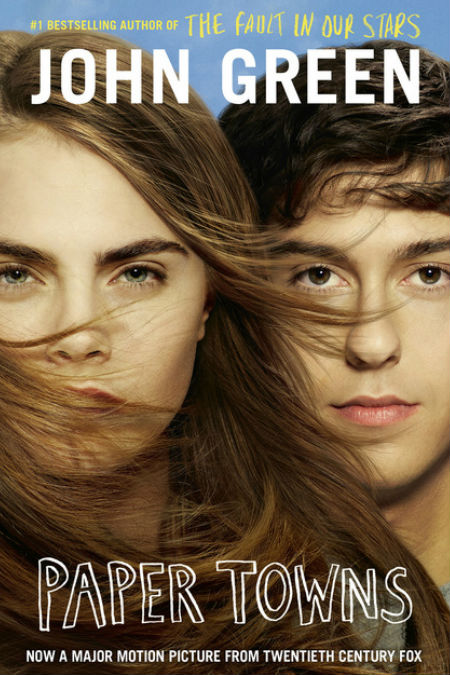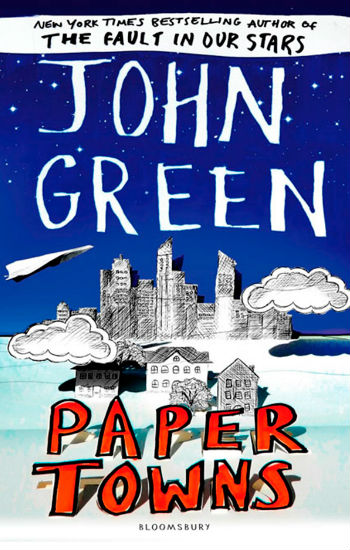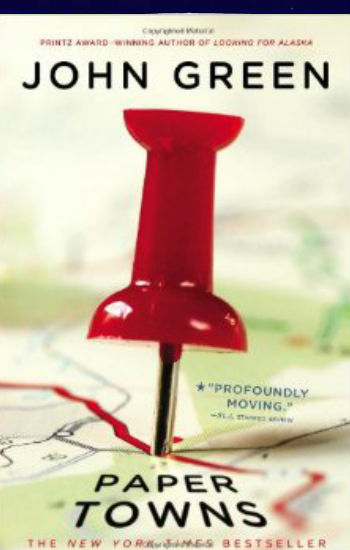
It’s worth asking in today’s information-saturated world, where everyone from the local deli operator to the highest earning CEO has an opinion and isn’t afraid to share it, how well we actually know the people around us.
We would all like to think of course that we know our friends, family and objects of affection better than they know themselves but do we really?
How much of what we think we know about them is influenced by our hopes, dreams, preferences, desires, all refracted through the very subjective prism of our worldview?
“There are so many people. It is easy to forget how full the world is of people, full to bursting, and each of them imaginable and consistently misimagined.” (p. 298)
Quite a large part of it, argues John Green who spends a large part of his book Paper Towns – it draws its title from the idea that the world we inhabit isn’t as substantial or solidly worthwhile as believe it to be – musing in the most lyrical, accessible and down to earth ways about how we do, and often don’t, know the people we call our own, or in the case of the protagonist Quentin Jacobsen (known as Q to his friends), those we would very much like to call our own.
In Quentin’s case, this latter group is an intimate small party of one, occupied by the deliriously beautiful, the captivating, the queen of social bees at his high school, Margo Roth Spiegelman, who has lived across from the lovesick young man ever since they were kids.
Close as bike-riding, park-playing children, they have now drifted apart in adolescence, even though Margo lives just across the street from Quentin – it’s a small strip of road in a perfectly-manicured suburb but it might as well be the Grand Canyon for the distance it puts between Q and his would-be girlfriend to end all girlfriends – leaving the routine-loving, video-game addicted young man to dream from afar about what might be.

That is until one night when Quentin, snug in bed, is awoken by Margo slipping with typical overstated bravura into his room, summoning him on a mission to avenge the unfaithfulness of her jock boyfriend Sam, and those with whom he either cheated, the vapid Becca and the disloyal Lacey, who ends up end with a fish buried in the back of her car for her sins.
It’s exhilarating, adrenaline-pounding, rule-bending fun, a wild ride through the dead of night and social milieus Quentin can’t even hope to gain admittance to, even in the dying weeks of high school, and shakes up his life in he never could have imagined.
For a start, he discovers that all the things he thought he knew about Margo were either out of date or wild assumptions with no basis in current reality; even so when Margo disappears the next morning after their adventures in the small hours of the night, it takes Quentin, his friends Ben and Radar, and yes even Lacey, who it turns out no one really took the time to properly get to know either, a long time to realise they think they know Margo better than they actually do.
“Yeah, but—-I don’t know,” Ben says. I can feel him looking over at me, being Serious Ben. “Just—-just remember that sometimes, the way you think about a person isn’t the way they actually are. Like, I always thought Lacey was so hot and so awesome and so cool, but now when it actually comes to being with her … it’s not the exact same. People are different when you can smell them and see them up close, you know?” (p.308)
The genius of Green’s writing, as always, is that he presents these insights, these social epiphanies, in ways that don’t seem forced or something that a self-aware older teenager could figure out if they were paying attention.
Granted there is an air of preternatural self-assurance of sorts about Quentin, the ever hungry for sexual intimacy Ben, and the newly-coupled, internet-obsessed Radar, but you never get the sense that the actions they take in the book, and the realisations they come to as a result, aren’t too adult to be at home in the world of fast-receding into adulthood teenagerdom.
For example, while Ben, Radar, Quentin and Lacey do rather spontaneously set off in search of Margo, who they fear has come to harm either self-inflicted or otherwise – beneath her bon vivant, devil-may-care persona lies a lonely girl no one took the trouble to see – spending a lot of time and money to do so, they only do it after completing the final week or so of high school.

This is no reckless adventure that upends everything and leaves a trail of destruction in its wake, and because it’s rooted in that kind of realness, the way the book ends, and again this defies predictions in a way that Hollywood should take note of more often than it does, makes perfectly satisfying sense.
Life doesn’t always give us the neat and tidy fairytale finishes we would like, the answer to every question, the fulfilment to every dream and Green acknowledges this, making it clear, as Quentin gets to know himself better along with those around him, that what you think you want and know isn’t always as clear cut as you might think.
“But there she is, and I am watching her through the Plexiglass, and she looks like Margo Roth Spiegelman, this girl I have known since I was two—-this girl who was an idea that I loved.” (p. 325)
Green prose is as deliciously funny and heart-stoppingly intense as ever, full of an insanely large number of quotable passages that make you wish you had been that eloquent and insightful as a teenager, or even let’s be honest, as an adult.
He captures the agony of desire, the thudding pain of reality crashing in, and the sweet acceptance that life is a thousand times more complicated than you ever gave it credit for, with the soul of poet, reminding us once again that regardless of how much we think we might know someone, there’s a still a iceberg’s worth of unseen feelings, thoughts, attitudes bobbing about below the surface.
Our job, if we’re brave enough, is to take off our blinkers and see it all, just as Quentin does in his journey through the Paper Towns of life.
*Following the success of The Fault in Our Stars, Paper Towns is coming to a big screen near you very soon with a trailer that neatly encapsulates the rebellious, fun and serious insights of this most accomplished of Young Adult novels …